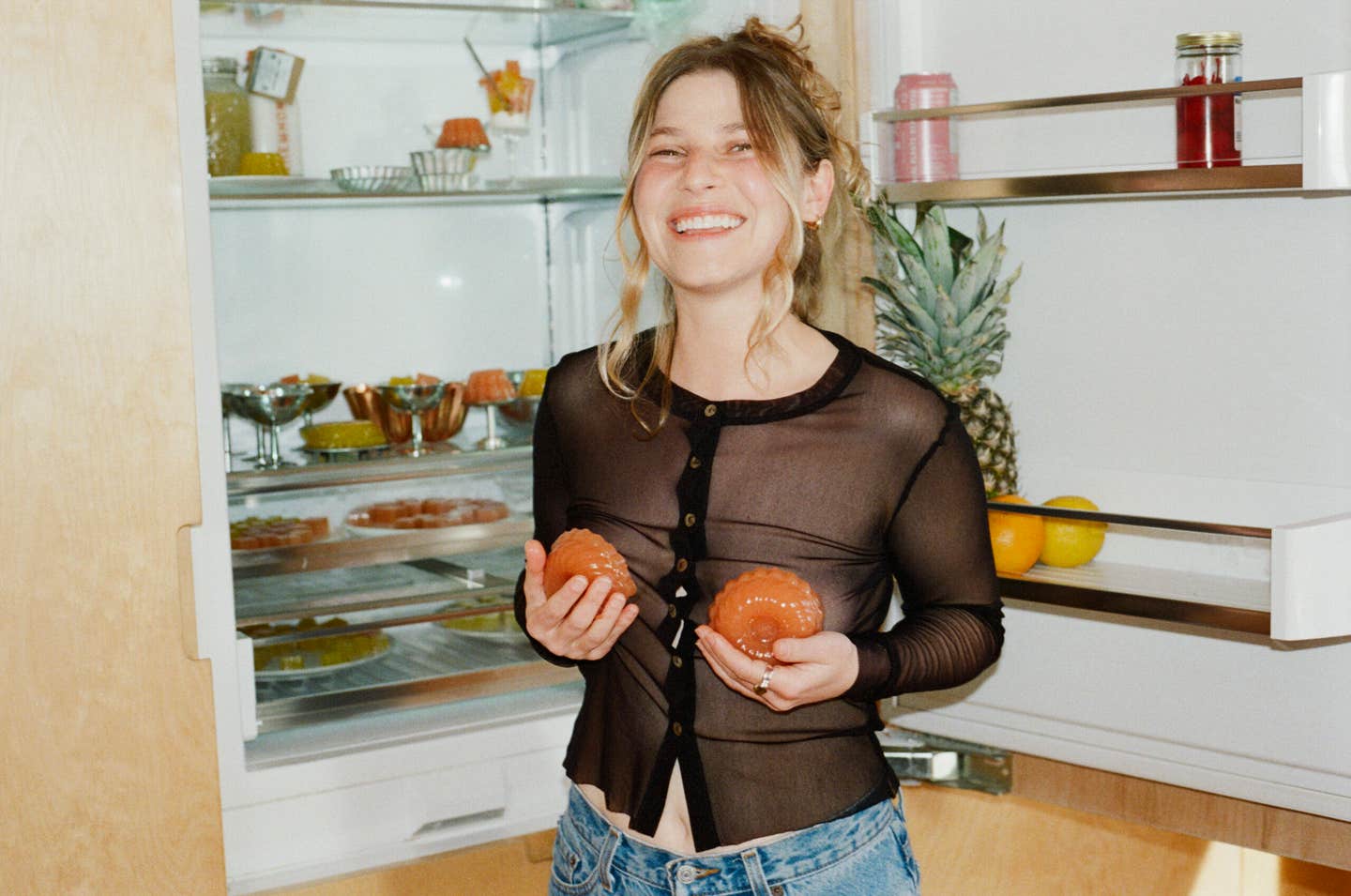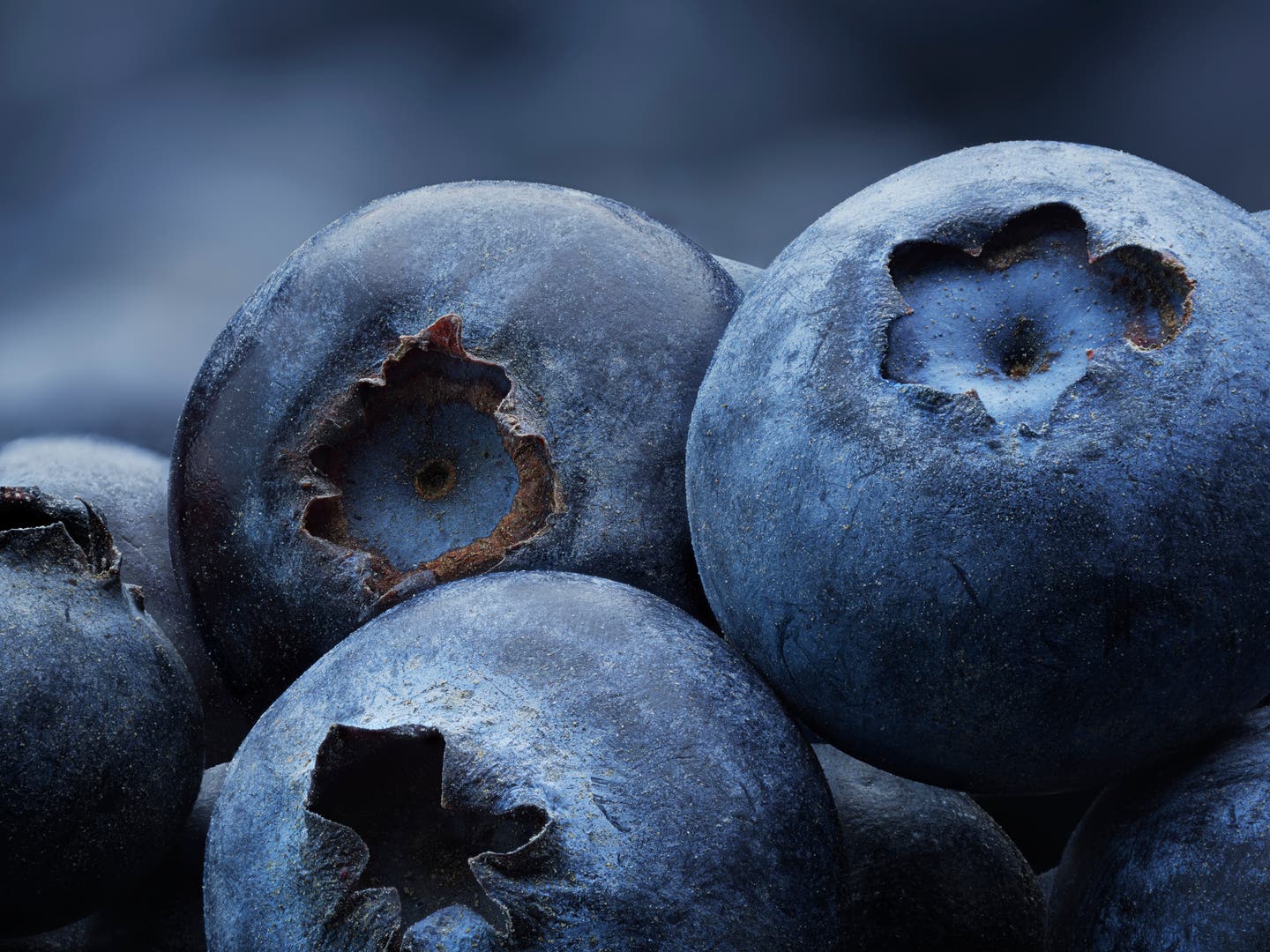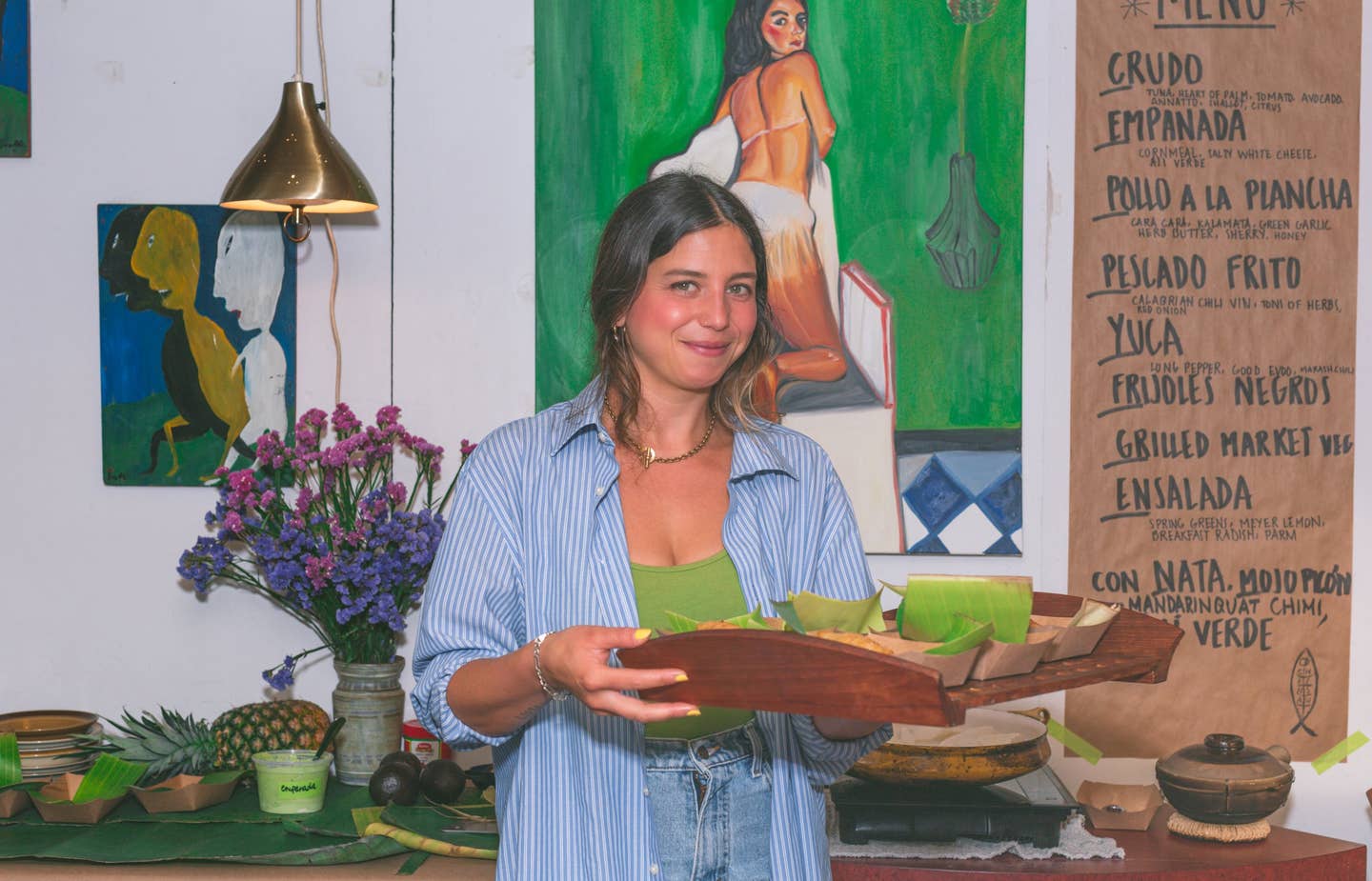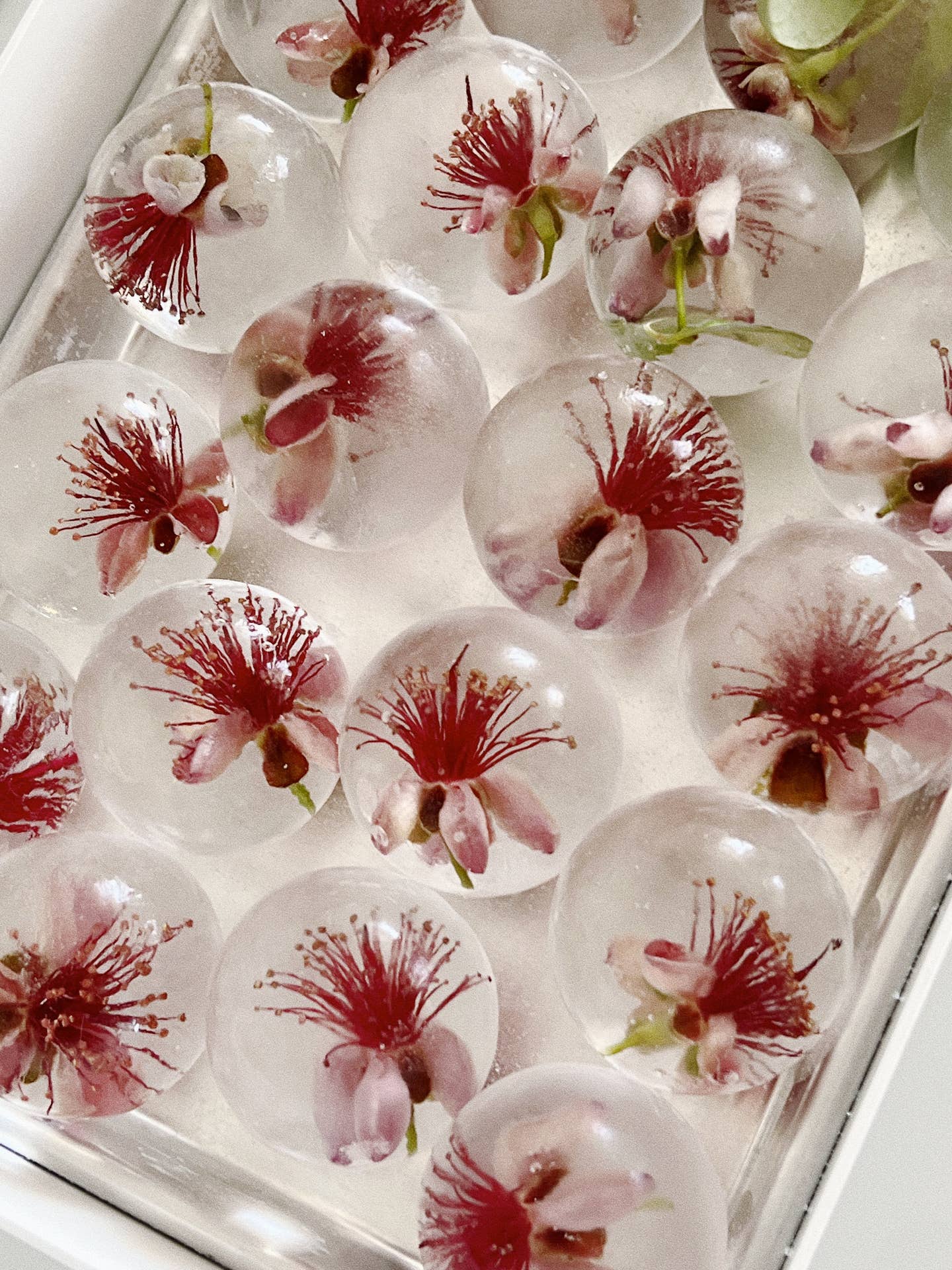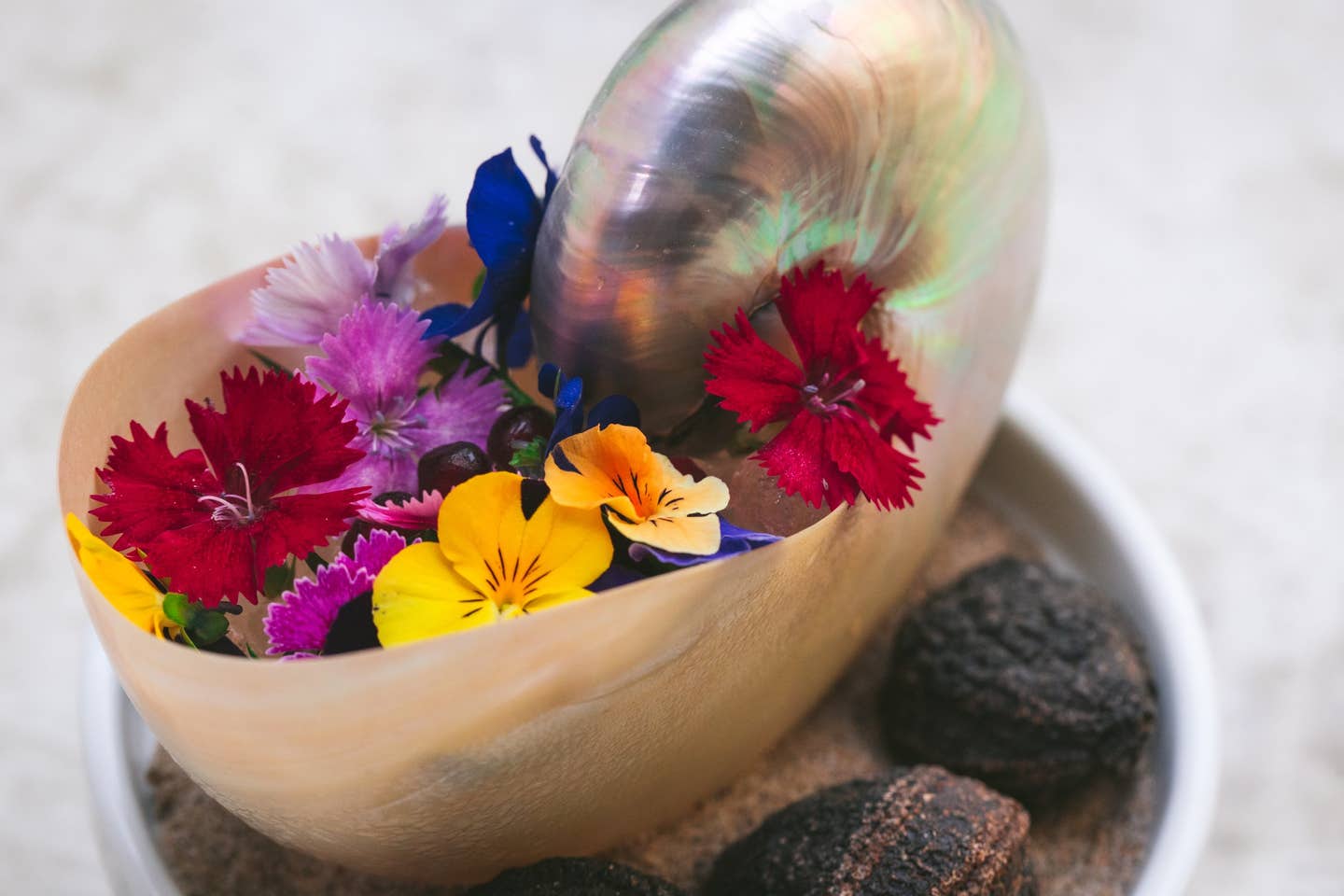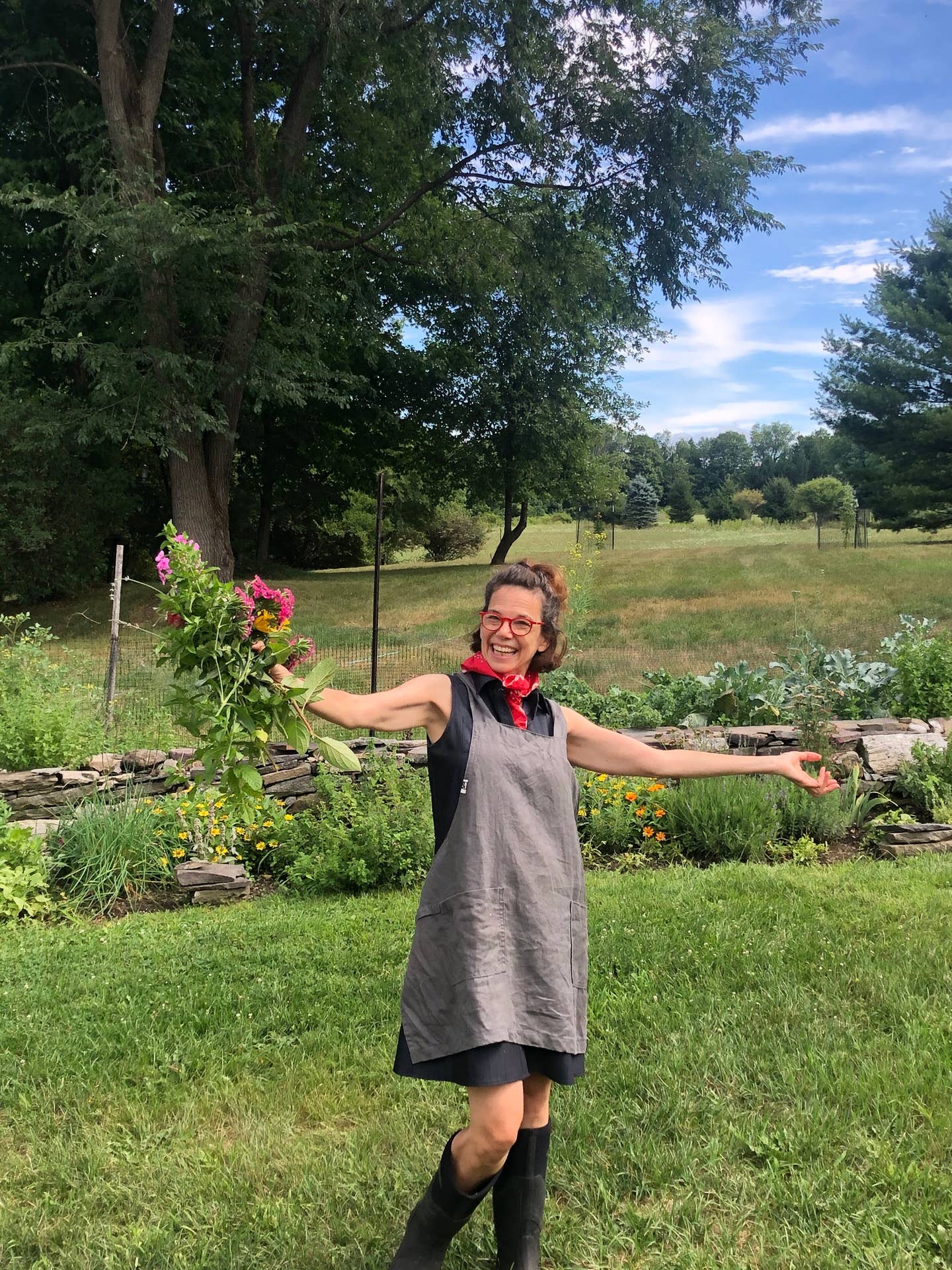Wendy Zeng on Gathering, Cannabis, and Collective Healing
On a hilly street in Cypress Park, behind a wooden door imported from Turkey, Wendy Zeng walks me through the Secret Garden Club headquarters, a.k.a. her backyard. This is a few weeks before the LA fires, before we are all collectively thinking about lost homes and gardens, before chefs are organizing meal trains to keep each other fed. But Zeng already has a mind for gathering people in inclusive ways, and in the tranquility of her backyard, I can see why.
Zeng has filled her backyard with rare plants, many of them heirloom Asian varietals, that bloom under the cover of citrus, avocado, peach, and guava trees. There are parsley bunches big enough to be bridal bouquets,and a row of homegrown cannabis. Along with running her catering company Drizzly Catering and the Secret Garden Club, Zeng is a founding member of Mogu Magu with Christina Wong. Mogu Magu is an Asian-American-women-led cannabis collective challenging the taboo of cannabis in Asian cultures and promoting wellness with feminist values.
They take their name from the Taoist hemp goddess Magu, and perhaps their website says it best: “Mogu means mushroom. Magu means cannabis and aunt. Together, we’re your rad mushroom weed aunties.”
Mogu Magu hosts their events at the Secret Garden Club; the space was built with community needs in mind. It operates as a sliding-scale venue available to rent out, though Zeng lets word-of-mouth drive bookings. As an organizer, Zeng has a mind for bringing artists, chefs, and marginalized communities together in ways that break out of outdated, often cost-prohibitive systems. It’s more than a venue, she says, but rather a gathering space that can flexibly attune to the diversity of creatives’ needs.
“As somebody who’s creating gathering, you can’t just be, like, ‘Oh, I want to charge this much and I want to make this food,’” Zeng says. “It’s not about those kinds of logistics. It’s about [asking], ‘What are you trying to achieve? What does the world need right now? What does our specific community need right now?’”
One thing we all need is plants, and the Secret Garden Club space bursts with them. Planter boxes are watered at timed intervals via a hydroponic system and an app that Zeng’s husband, Wes, developed. We walk through rows filled with sweet Tokyo cucumbers, Peruvian peppers, okra, microgreens. We pass a bush of lemongrass that Zeng infuses into gin and a tomato trellis ripe with Midnight Romas, black tomatoes, and Sungolds. Zeng collects seeds from all over the globe, their influence finding its way into her cooking.Raised in Chengdu, China, and in Memphis, Tennessee, Zeng started cooking with her grandfather when he hosted weekend dinners. That was the first moment shesaw how cooking can be an act of leadership that brings people together.
Throughout the pandemic, while gathering was put on pause, Zeng and her husband slowly built out their Cypress Park backyard; now it includes nooks for projector screenings, a home-built hot tub, and plenty of outlets for string lights. But what she loves most is when people transform the space into their own. For a Dia de los Muertos event back in November, piles of marigolds and candles lined the entrance, and a serving station was set up in the sturdy branches of the coastal live oak (native to Northeast LA), with chef Sammy Beech lowering treats to guests, a playful nod to the “dropdown bakery” she had in the pandemic. The Dia de los Muertos event, organized by Susie Plascencia of Latinas in Cannabis,explored elements of Mexican cultural identity that some “Third Culture Kids” of Mexican heritage might not have been regularly exposed to. Similarly, Mogu Magu is reclaiming cannabis as a centuries-old wellness practice working with Traditional Chinese Medicine.
“Doctors are just now starting to learn about the endocannabinoid system,” Zeng says, as she prepares jasmine green tea for us in the gongfu tradition. With each steep, the flavor slowly develops from light and floral to deeper, grassier aromatics.
“Our endocannabinoid system naturally produces cannabinoids to regulate anandamide, which [takes its name from the] Sanskrit for ‘bliss.’ So, they’re, like, these bliss molecules that our body naturally generates to help us regulate homeostasis. When you think about Traditional Chinese Medicine, a lot of it is holistic healing. A lot of it is about adaptogens and creating harmonious balance. And that’s why it made perfect sense that cannabis was also part of the earliest pharmacopeia books in traditional Chinese medicine. It’s always been in our culture, always been in our practice. And it’s always been this holistic balancing approach. It’s only going to work if we can help people understand how to consume for themselves, because what works for one person might not work for you.”
Zeng seeks out cannabis that is sun-grown, free of pesticides, and harvested with care. She supports independent farmers, like Tina Gordon of Moon Made Farms (sister to Valerie Gordon of Valerie Confections), who cultivates her crops in harmony with the cycles of the moon. Mogu Magu is also resurfacing cultural beliefs that have been obscured by traditional patriarchal systems. The collective’s namesake goddess Magu was described as a medicine woman, immortal and independent, who used cannabis as part of her power. Growing up in a patriarchal Confucianist system, “I didn’t really feel like my own values were reflected in my culture,” Zeng says, but the leadership practices she’s discovered in the Taoist Magu deity better reflect the modern feminist ideals of Mogu Magu.
Since the fires, Zeng and Wong are doubling down on community leadership. They’re creating community programming with an intergenerational approach, inviting elder “Magus” to lead workshops “from miso making, traditional Chinese ferments, gardening, growing mushrooms in a basket, to making magic mushroom honeys.” They also are applying ancient Asian healing practices to community wellness events.
“We want to show conscious consumption as art to inspire joy as we heal and rebuild,” Zeng says. “Joy is what’s going to keep us going in this marathon.”
Indeed, Zeng has created an oasis of joy in her backyard. She acknowledges that not everyone in LA has space for a full garden, but she’s always encouraging people to grow more.
“Even if it’s, like, a little herb, you know? Just being able to grow your own food … it gets you appreciating it from beginning to end. When it’s a baby, you can use it as a microgreen. When it’s bigger, you can use it as a tender green salad, and when it’s even bigger you can stir-fry it and put it in soups. And then it becomes a flower, and then it goes to seed, and then you can use the seed or collect it and plant it again.”
Her approach to growing plants and creating joy aligns with her vision for how Angelenos can move forward after the fire: Find the crack in the sidewalk and grow.
“There is so much need for collective healing and positive affirmation for how we rebuild,” Zeng says. “It all starts with individuals seeing what’s possible in new ways of living and caring for our communities. ”
Mid Autumn Festival Mahjong Party with Angie QQ of Mahjong Mistress + East Never Loses. Photo Credit: Wes Chang
